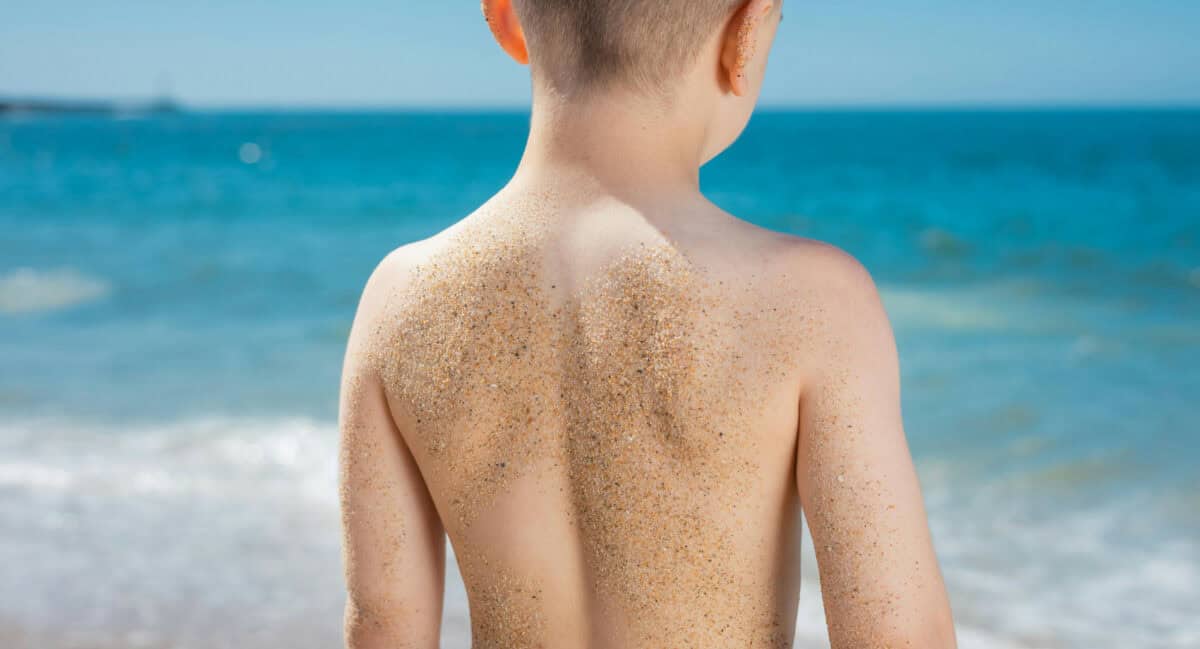- The Health Benefits of Using Sunshades - January 26, 2025
- How to Select the Right Color for Sunshades - January 17, 2025
- Fun New Year Events and Activities to Enjoy in Arizona - January 6, 2025
Sunburns can be painful and uncomfortable for anyone, but they’re especially hard on children. Kids often spend more time outdoors, making them more vulnerable to sun exposure. When a sunburn happens, it’s crucial to know how to treat it and soothe your child’s discomfort.
Understanding Sunburn Severity in Children
Sunburns can range from mild to severe, with varying degrees of pain, redness, and peeling. For children, a sunburn can be particularly distressing because their skin is more sensitive than adults. If your child has a severe sunburn with blisters, intense pain, or symptoms like fever or chills, you should seek medical attention immediately. These could be signs of sun poisoning or other complications requiring professional care.
However, for mild to moderate sunburns, you can usually manage the treatment at home. The key is to act quickly to reduce pain and inflammation while providing comfort and support.
Cooling the Burned Area
The first step in treating your child’s sunburn is to cool the affected area. This can help relieve the burning sensation and reduce redness. Here are some simple methods to cool a sunburn:
- Cool Showers or Baths: Give your child a cool (not cold) shower or bath to lower their body temperature and soothe the burn. Avoid hot water, as it can irritate the skin further.
- Cold Compresses: Apply a cold compress or a damp cloth to the sunburned area. Do not use ice directly on the skin, as it can cause additional damage.
Cooling should be done gently, without rubbing or applying pressure to the burned area. This helps reduce discomfort and provides immediate relief.
Moisturizing and Hydrating
Sunburns can cause the skin to become dry and flaky, leading to discomfort and itching. After cooling the sunburned area, gently apply a moisturizing lotion or aloe vera gel. Aloe vera is known for its soothing properties and can help reduce inflammation. Look for products that do not contain alcohol or fragrances, as these can irritate the skin.
Keeping your child hydrated is also important. Encourage them to drink plenty of water to help their body recover and prevent dehydration. Offer water regularly, and consider sports drinks with electrolytes if needed to maintain hydration levels.
Managing Pain and Discomfort
Sunburns can be painful, especially for children. To help manage pain and reduce inflammation, you can give your child over-the-counter pain relievers like ibuprofen or acetaminophen. Follow the dosage instructions for children and consult a healthcare provider if you have concerns about drug interactions or allergies.
Additionally, you can use soothing creams or ointments to relieve discomfort. Avoid products containing lidocaine or benzocaine, as they can cause skin irritation or allergic reactions.
Protecting the Sunburned Skin
While your child is recovering from a sunburn, it’s important to protect the affected area from further sun exposure. To do this:
- Wear Protective Clothing: Dress your child in lightweight, long-sleeved shirts, pants, and a wide-brimmed hat to shield their skin from the sun.
- Stay Indoors: Keep your child indoors or in shaded areas until the sunburn has healed.
- Apply Sunscreen: Use a broad-spectrum sunscreen with at least SPF 30 on exposed skin, even if you’re just stepping outside for a short time.
Taking these precautions will help prevent further damage and allow your child’s skin to heal.
Monitoring Your Child’s Sunburn
As your child’s sunburn heals, keep an eye on their symptoms to ensure there are no signs of infection or other complications. If you notice any of the following, seek medical attention immediately:
- Blisters that burst or show signs of infection (such as pus or increased redness)
- Fever or chills that persist
- Severe pain that doesn’t improve with over-the-counter pain relievers
Monitoring your child’s condition and seeking medical advice when needed can help ensure a safe and speedy recovery.
Caring for your child’s sunburn involves a combination of cooling, moisturizing, pain management, and protection from further sun exposure. Acting quickly and providing comfort can make a big difference in how fast they recover. Remember to encourage hydration and monitor for any signs of complications. Most importantly, take steps to prevent future sunburns by applying sunscreen, dressing in protective clothing, and keeping your child in the shade whenever possible. With the right care and prevention, you can help your child heal and enjoy outdoor activities safely.

